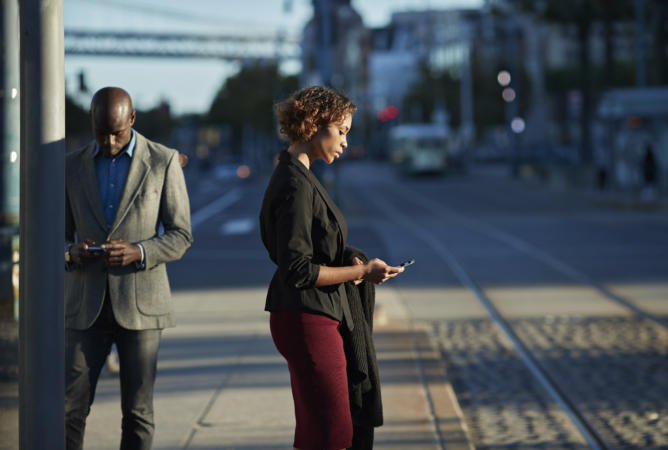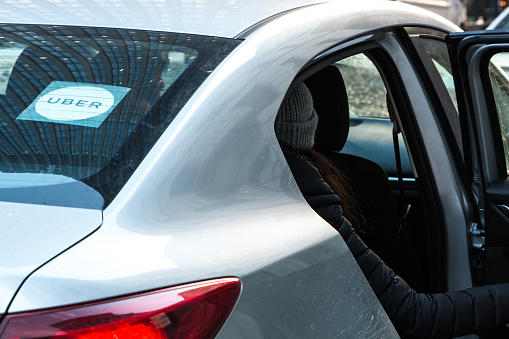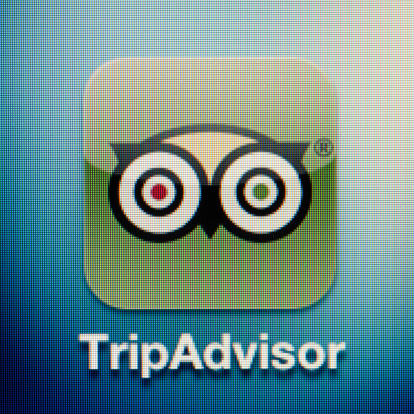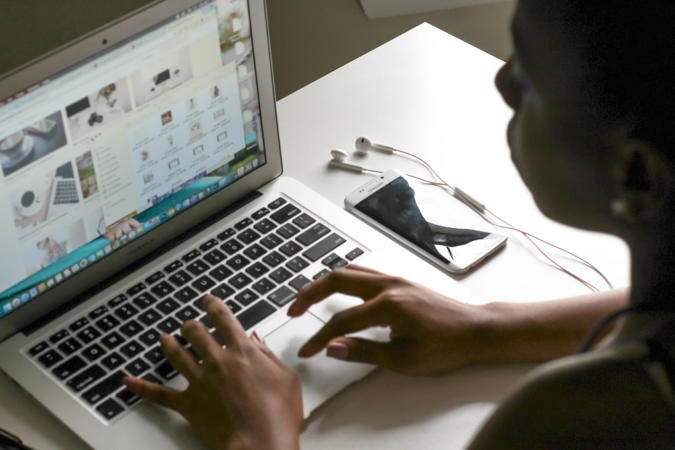All results

Bouncing off the plan to create a modern-day Green Book, a guide for African Americans who were seeking places they could safely reside during the Jim Crow period, ANJEL Tech was bloomed. Designed by James A. Samuel, Jr. alongside his wife Evelyn Samuel in October of 2020, the powerful body camera is designed to turn one’s smartphone into a lifeline. As a Black woman, when ANJEL Tech was brought to my attention, I was automatically intrigued. Every day, when I scroll through social media, another Black woman is missing and there appear to be no traces of her whereabouts. According to reports, last year alone nearly 183,000 Black individuals went missing and of those nearly 100,000 Black women vanished. These statistics are frightening when you consider the cries of these individuals are often met with silence and their families left with unanswered questions. ANJEL Tech puts the power back into the hands of victims and their families by storing live streams of the incident into a...

There may be no such thing as privacy, according to a New York Times article by Stuart A. Thompson and Charlie Warzel. In a study on privacy and security, the Times assessed the sheer power of location tracking devices and their encroachment upon a basic right to privacy. The danger in this type of surveillance is that in addition to known sources and apps, monitoring happens with several other unknown apps. The Times Privacy Project revealed the location information of a sample population provided through phone app data. “In the cities that the data file covers, it tracks people from nearly every neighborhood and block, whether they live in mobile homes in Alexandria, Va., or luxury towers in Manhattan,” Thompson and Warzel shared in the Times. Perhaps more shocking than that revelation is the fact that the tracking measures were put in place not by phone companies that provide the apps, but by an unknown entity: the location tracking companies that are bundled with the apps. “Even...

At the end of every Uber ride, you’re given the opportunity to rate your driver. If a driver’s rating falls too low (specifically, below 4.6 stars), they get kicked off the app. What most people don’t know is that your driver can rate you too. All ratings are reported as averages and are visible on your own Uber profile. The rating didn’t really used to have any impact, but now it will. Uber announced today that it will deactivate accounts of riders whose ratings fall too low. In a blog post announcing the change, Kate Parker, Uber’s Head of Safety Brand and Initiatives, wrote: “Riders may lose access to Uber if they develop a significantly below average rating. Riders will receive tips on how to improve their ratings, such as encouraging polite behavior, avoiding leaving trash in the vehicle and avoiding requests for drivers to exceed the speed limit. Riders will have several opportunities to improve their rating prior to losing access to the Uber apps.” It’s not clear just how low...

Sorting out vacations and other travel plans can be a major pain. Online sites like TripAdvisor are meant to make the process easier, but a 2017 report revealed that the company removed reviews detailing robbery, rape, and sexual assault. The posts were either “determined inappropriate by the TripAdvisor community” or removed by staff for being “off topic” or not “family friendly.” Not too long after , the Federal Trade Commission began looking into TripAdvisor’s business practices. Now, it seems the company is trying to redeem itself. On Tuesday, TripAdvisor’s Core Experience President Lindsay Nelson announced two new safety features that will be added to the site: “The need for better access to safety information while traveling has never been greater…Often, something tragic must happen in order to engage in a dialogue about traveller safety, which by then is far too late…As part of our commitment to provide travellers with better access to critical safety information, TripAdvisor...

The internet is the gateway to so many opportunities, and for some people, it has become just as important to their daily lives as the food they eat. On the flip side, the internet makes us vulnerable to a lot of individuals or organizations with malicious intent. With information being so easy to access these days, all anyone needs to become a hacker is just a computer and internet access. This makes every single internet user a potential victim of hacking. Fortunately, there are actions you can take to protect yourself from hackers. Here are a few of them. Enter private information on secure websites only There are numerous websites claiming to be trustworthy all in the bid to rope you into divulging sensitive information like passwords or credit card details. You have to ensure that the website is authentic before you enter sensitive details into any field. A good way to check is to make sure the connection with the site is “ https:// ”, which means the site is encrypted and...